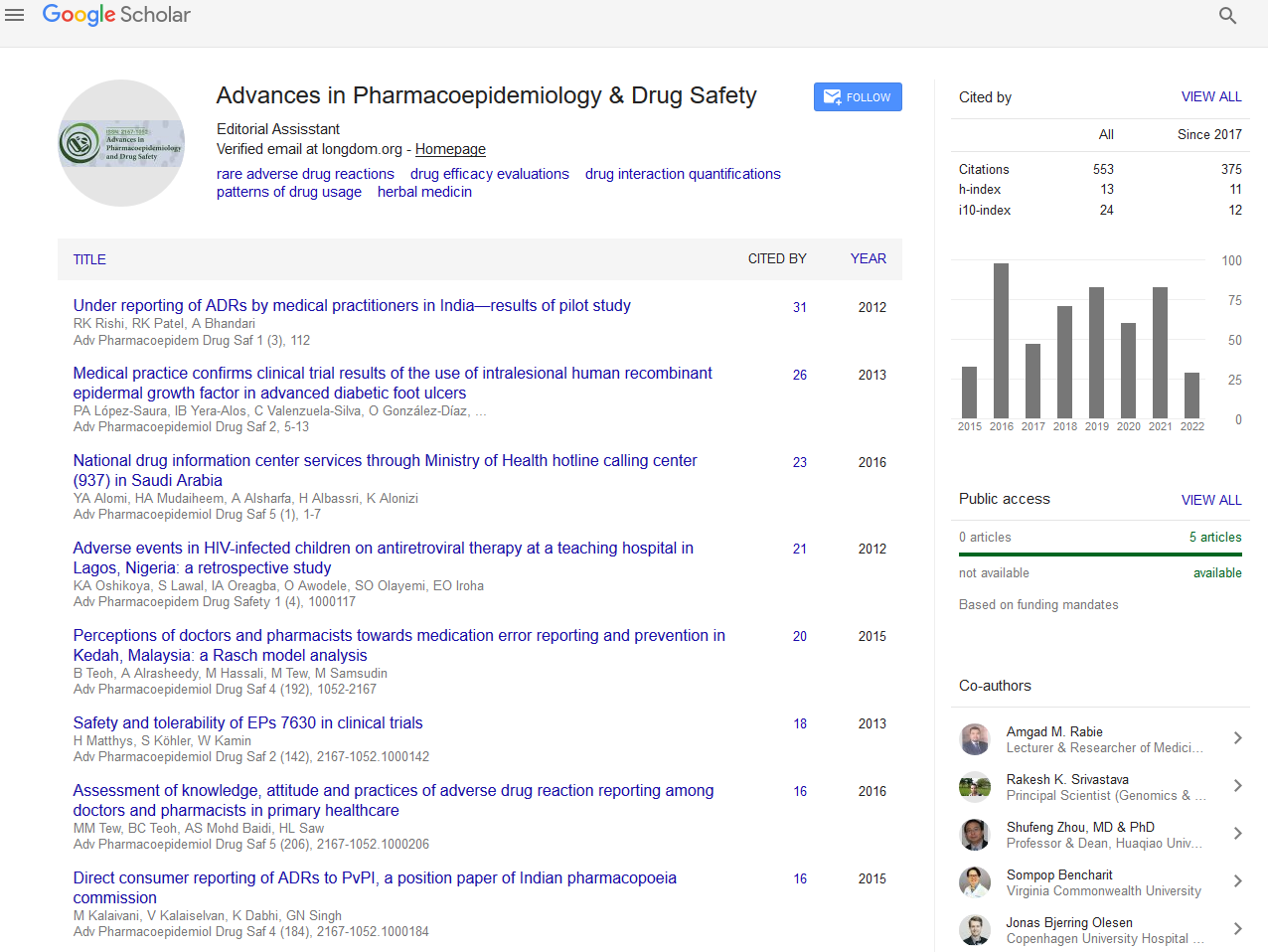Indexed In
- Open J Gate
- Genamics JournalSeek
- Academic Keys
- JournalTOCs
- RefSeek
- Hamdard University
- EBSCO A-Z
- SWB online catalog
- Publons
- Geneva Foundation for Medical Education and Research
- Euro Pub
- Google Scholar
Useful Links
Share This Page
Journal Flyer

Open Access Journals
- Agri and Aquaculture
- Biochemistry
- Bioinformatics & Systems Biology
- Business & Management
- Chemistry
- Clinical Sciences
- Engineering
- Food & Nutrition
- General Science
- Genetics & Molecular Biology
- Immunology & Microbiology
- Medical Sciences
- Neuroscience & Psychology
- Nursing & Health Care
- Pharmaceutical Sciences
Abstract
Comparing Drug-Drug Interaction Severity for Clinician Opinion to Proprietary Databases
Michael Armahizer, Sandra L. Kane-Gill, Pamela L. Smithburger, Ananth M. Anthes and Amy L. Seybert
Purpose: Commercial clinical decision support software (CDSS) may overestimate the severity of drug-drug interactions (DDI) because of their broad application; whereas, clinicians with knowledge of the patient should be able to better assess DDI severity. The purpose of this project was to compare DDI severity for clinician opinion in the context of the patient’s clinical status to the severity of proprietary databases.
Methods: This was a single-center, prospective evaluation of DDIs at a large, tertiary care academic medical center between October 11, 2010 and November 5, 2010 in a 10-bed cardiac intensive care unit (CCU). A pharmacist identified DDIs using two proprietary databases. The physicians (fellow and attending) and pharmacists (rounding and distribution) caring for the patients evaluated the DDIs for severity while incorporating their clinical knowledge of the patient. Severity was ranked on a scale ranging from A to D and X.
Results: A total of 61 patients were included in the evaluation and experienced 769 DDIs. The most common DDIs included: aspirin/clopidogrel (n=21, 2.7%), aspirin/insulin (n=21, 2.7%) and aspirin/furosemide (n=19, 2.5%). Pharmacists ranked the DDIs identically 73.8% of the time, compared to the physicians who agreed 42.2% of the time. Pharmacists agreed with the more severe proprietary database scores for 14.8% of DDIs versus physicians at 7.3%. Among the five contraindicated DDIs, two were rated as category B (minor severity/no action needed) and three as category C (moderate severity/monitor therapy) by the majority of the reviewers. Overall, clinicians agreed with the proprietary database 20.6% of the time while clinicians ranked the DDIs lower than the database 77.3% of the time.
Conclusions: Proprietary DDI databases generally label DDIs with a higher severity rating as compared to clinicians who are caring for patients. Developing a DDI knowledgebase for CDSS requires careful consideration of the source of the severity information and should include clinician input in order to create clinically meaningful alerts.


